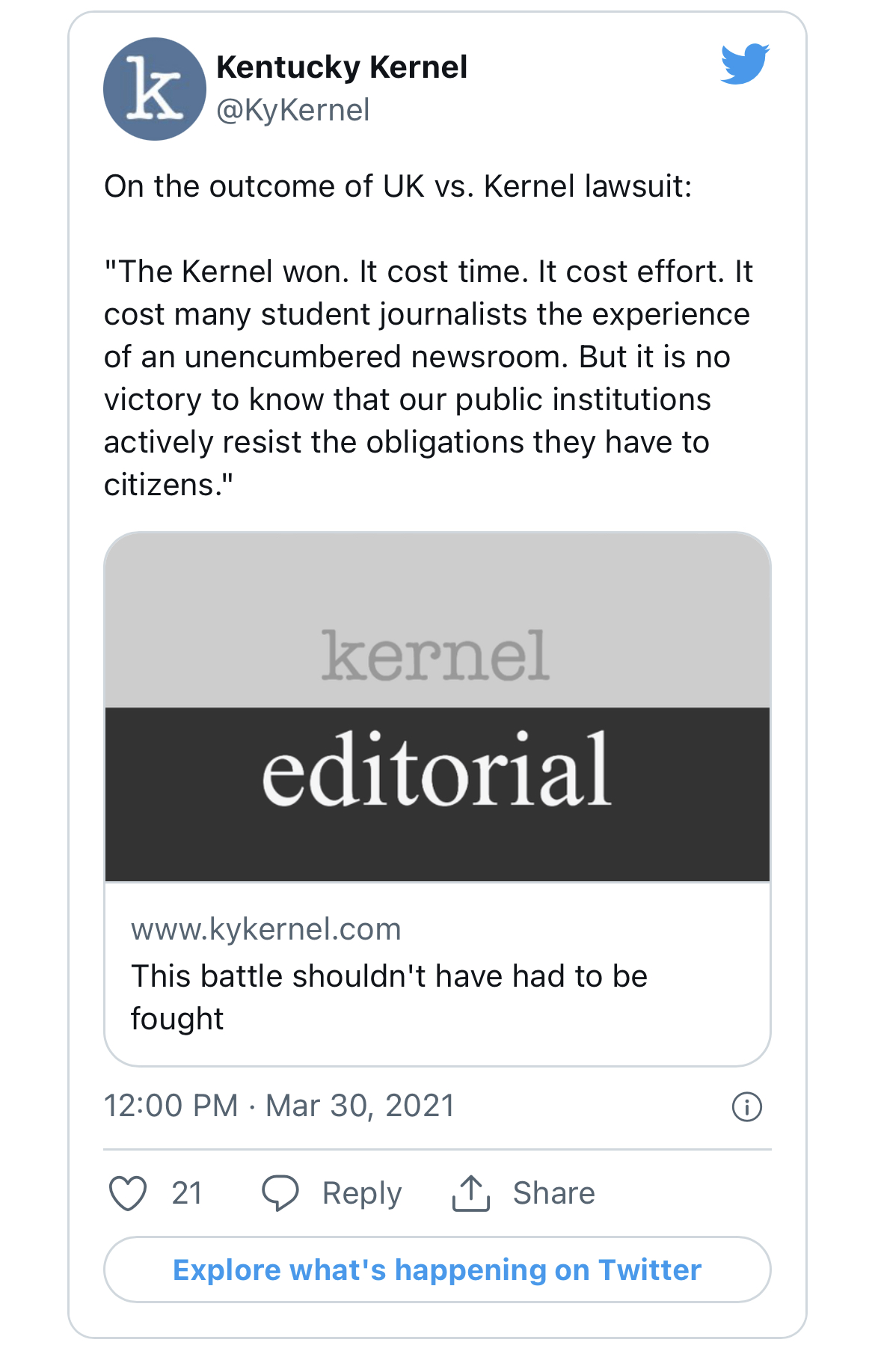
In spite of the handful of naysayers we encountered during Sunshine Week 2022, the Kentucky Open Government Coalition is encouraged and inspired by the candor and commitment of our Sunshine Week guest contributors.
From their contributions, we draw an important lesson.
Each time a Kentuckian is thwarted in an attempt to obtain public records or attend public meetings, that Kentuckian has a choice.
The Kentuckian can choose to become a critic of our open government laws and allow the public agency to have the last word. Or the Kentuckian can choose to become an open government advocate and refuse to let the public agency have the last word.
In any given week, we hear from a frustrated Kentuckian whose records request has been ignored; who has been advised that the public agency is “compiling responsive records for review and they can expect a response” by some arbitrary future date weeks or even months away; who has received a boilerplate public agency denial; or whose appeal to the attorney general has been rubber stamped in favor of the public agency whose actions they appealed.
We may also hear from a Kentuckian who has observed a public meeting at which a vote on an important local issue is summarily taken without public agency discussion; who cannot determine why a public agency went into closed session on the scant information the agency provided prior to going into that closed session; who is excluded from a public meeting by a public agency’s failure to give adequate notice of that meeting; or whose open meetings appeal has been rubber stamped by the attorney general in favor of the public agency whose actions they appealed.
That is the “make or break” moment. Will that Kentuckian give up, ascribing the denial to bad laws, the imbalance of power, agency corruption, or all of the above? Or will that Kentuckian refuse to let the public agency have the last word?
In each of the stories we shared, our guests overcame their initial disappointment and frustration. They refused to let the public agency have the last word, and in doing so they were empowered.
Open government advocates often suggest that disappointed open records requesters and open meetings complainants challenge every denial. In these times, we encourage a legal challenge advisedly. Given the time, expense, and uncertainty of an appeal — not to mention the fact that some public agency denials are legally defensible — a legal challenge is not always wise.
But where the agency’s position is legally indefensible, and there is clearly more to be gained than lost, we urge an appeal. We are fortunate in Kentucky that legal recourse exists — short of filing a lawsuit in circuit court — through an administrative appeal to the attorney general. An agency that believes it has “gotten away“ with violating the law is likely to become a repeat offender.
Kentucky’s new open government advocates must candidly assess the strength of their position as well as the weaknesses of the agencies’ position. They must candidly assess what it is they hope to achieve by appealing as well as what they risk.
Kentucky’s open government laws are not a panacea for government’s ills, but they are the “best disinfectant“ — other than the ballot box — for its festering corruption. They are the remedy by which we draw our public officials and agencies out of the shadows and into the sanitizing sunlight, when we — like our Sunshine Week guest contributors — refuse to allow those public officials and agencies to have the last word.
“No serious evils, no rankling sore in the
body politic, can remain long concealed, and when disclosed, it is half destroyed.”



